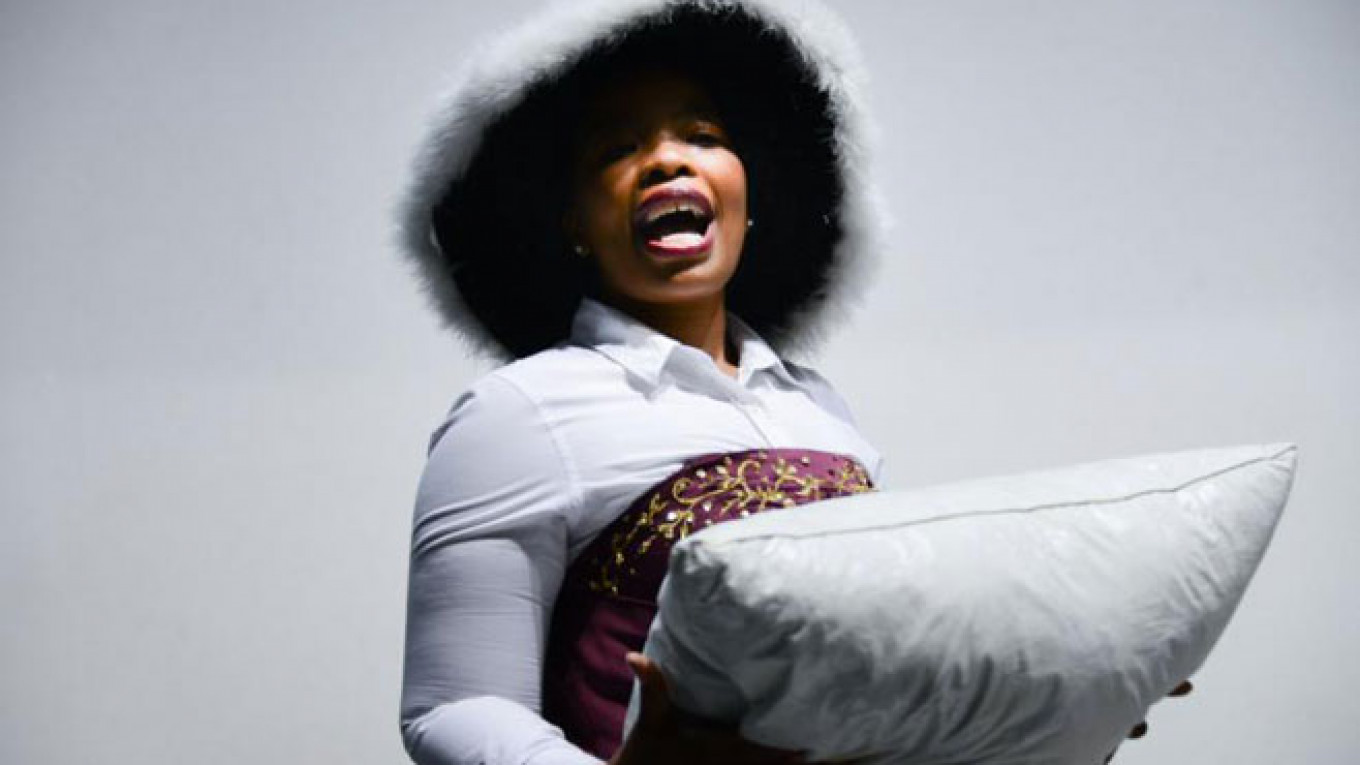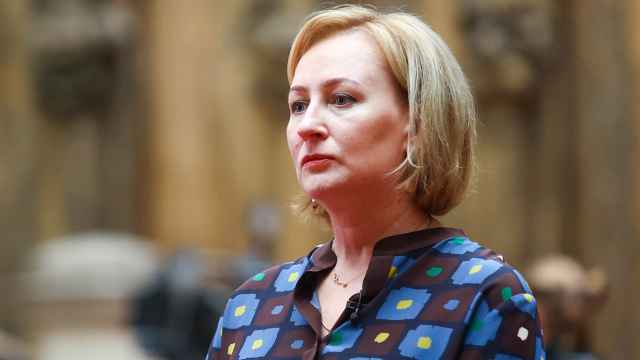"Lights! And come onto stage" shouts the voice from the back of the room to a group of students on a blue-lit stage. "OK, stop and go again."
It is immediately clear at a recent rehearsal that the Peoples' Friendship University theater group is not your ordinary theater group.
The instructions are in Russian, but the actors, aged 18 to 34, speak a dozen language and come from all over the globe. They have been in Moscow for less than six months as students at the university.
Three tall young men walk onto the stage to welcome the audience and set the scene. David Figueroa and Mauro Gudino are from Ecuador, Abdul Hassam is from Sudan. None of them spoke Russian when they landed in the country.
Now they are appearing in a Chekhov adaptation, fluent in the writer's one-act play "The Wedding," and able to use the 19th-century prose in their everyday lives.
"It is not like in a classroom," said Dino Seide who is from Guinea-Bissau and plays the father of the bride in "The Wedding." "The words I know from theater I do not forget." Hassam concurred: "I am constantly learning new words and phrases, the words of Chekhov come in handy every day."
"Foreigners find it interesting to study Russian language using theater," said Kirill Lazutkin, who co-founded the theater group. "They speak to each other quoting lines and phrases spoken by their characters."
Lazutkin used to teach English in Russian schools using works by William Shakespeare and Charles Dickens to, he said, great success. "Children liked it and years later I saw one student who was still able to recite the 'Hamlet' soliloquy by heart."
"We start from emotions and then they start to understand what the sentence means. Later they understand parts of the phrases and words," Lazutkin said, "This is the way a child learns when his or her mother speaks."
Lazutkin took the idea for the international theater group from veteran British director Peter Brook. Lazutkin cities Brook as saying that theater should not be bound by tradition and needs renewing, like "a phoenix that has to be constantly brought back to life."
Lazutkin is keen to share his international take on Chekhov. "What they are doing is very often surprising and unexpected. I am certain it will be interesting for foreigners and Russians," he said.
Chekhov's one-act play "The Wedding" is the first on the theater group's educational program as Chekhov, said Lazutkin, is both simple and deep.
"The Wedding" is a comic gem that tells of a bride and groom who are about to get married. But the reader soon realizes through a series of absurd encounters that this is a marriage of convenience and not of love.
"I play the role of a woman who wants to escape her ordinary life and so gets married," said Petya Tsekova, an international relations student from Bulgaria. "The theater helps me learn Russian and improve myself. The teachers give us valuable advice for the stage and for life in general."
"We have a very international group — at the end of this year I won't just be speaking Russian but a few more languages," she said.
The theater group is also a place to make friends and learn together. Watching the group rehearse, you instantly see a rapport between the students, a feeling of teamwork — and a touch of chaos.
"Sometimes it is difficult, but these are my friends and we work through things," said Suze Pejcinovska from Macedonia, who is studying to be a dentist. "It is nice to be here with these people and to make mistakes together."
"The Wedding" by the Peoples' Friendship University international theater group is on Thursday and Friday at 6 p.m. Interclub concert hall, 21a Miklukho Maklaya Ulitsa. Metro Belyaevo. Entrance is free. For more information, contact Kirill Lazutkin at +7 915-036-3187.
A Message from The Moscow Times:
Dear readers,
We are facing unprecedented challenges. Russia's Prosecutor General's Office has designated The Moscow Times as an "undesirable" organization, criminalizing our work and putting our staff at risk of prosecution. This follows our earlier unjust labeling as a "foreign agent."
These actions are direct attempts to silence independent journalism in Russia. The authorities claim our work "discredits the decisions of the Russian leadership." We see things differently: we strive to provide accurate, unbiased reporting on Russia.
We, the journalists of The Moscow Times, refuse to be silenced. But to continue our work, we need your help.
Your support, no matter how small, makes a world of difference. If you can, please support us monthly starting from just $2. It's quick to set up, and every contribution makes a significant impact.
By supporting The Moscow Times, you're defending open, independent journalism in the face of repression. Thank you for standing with us.
Remind me later.






